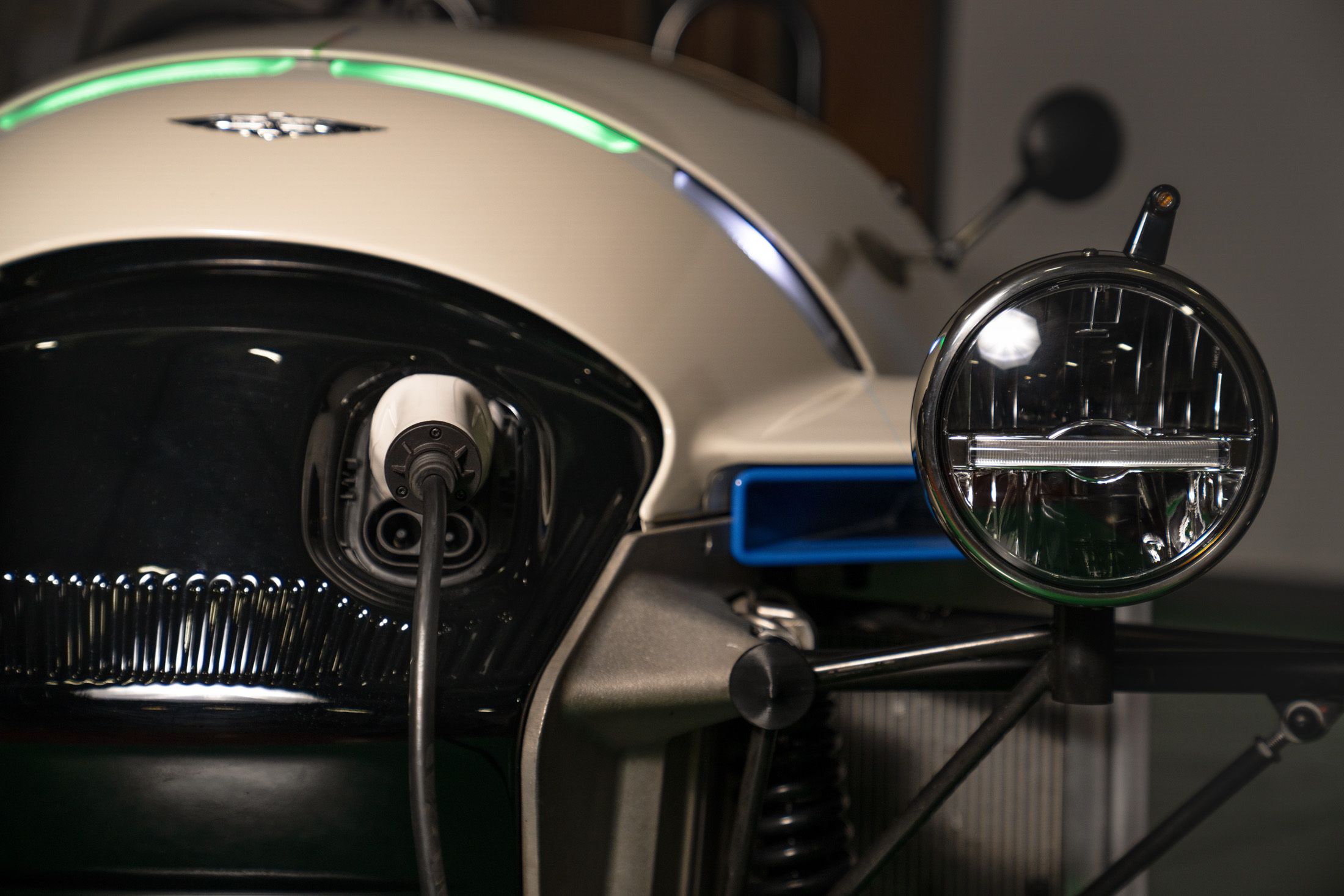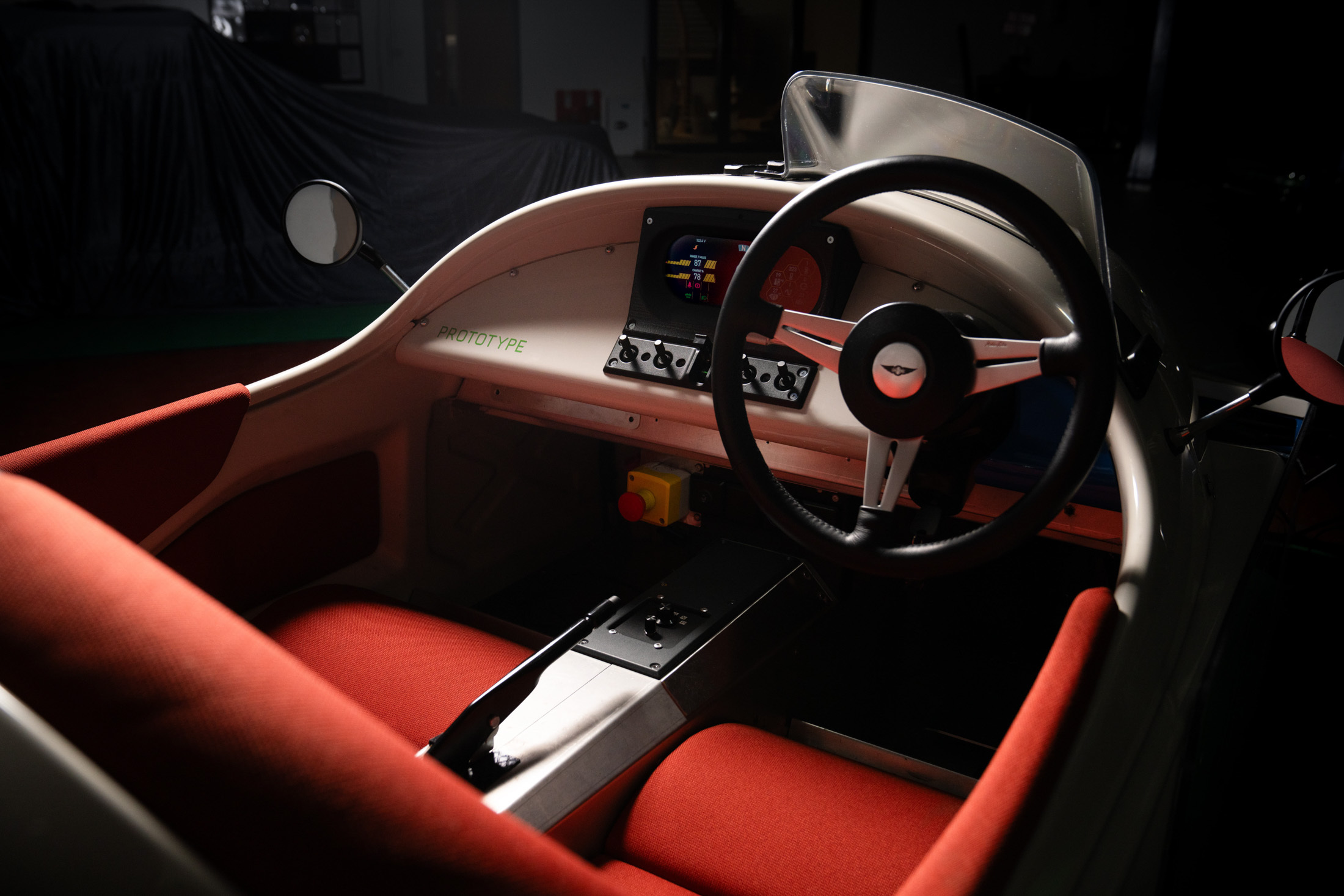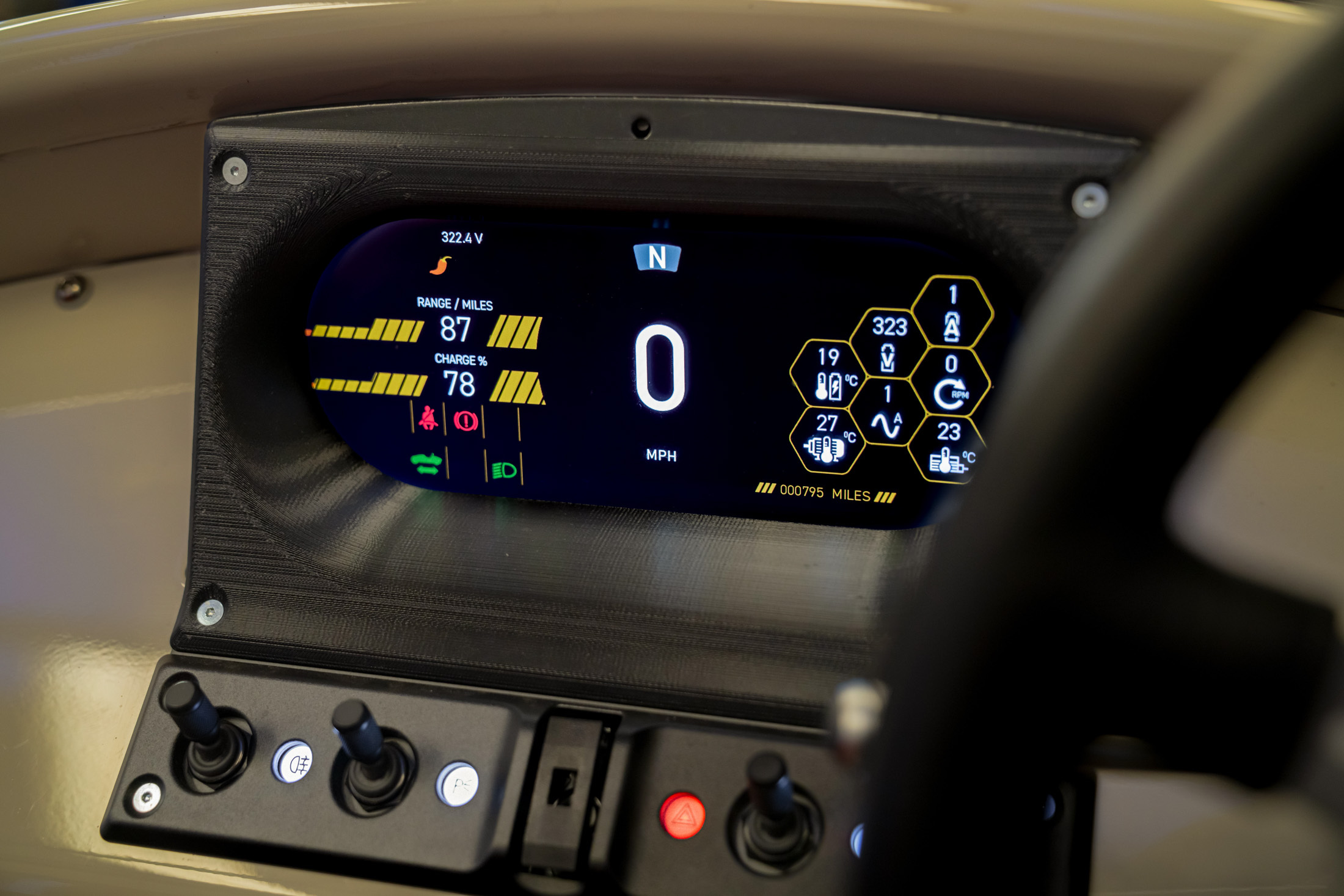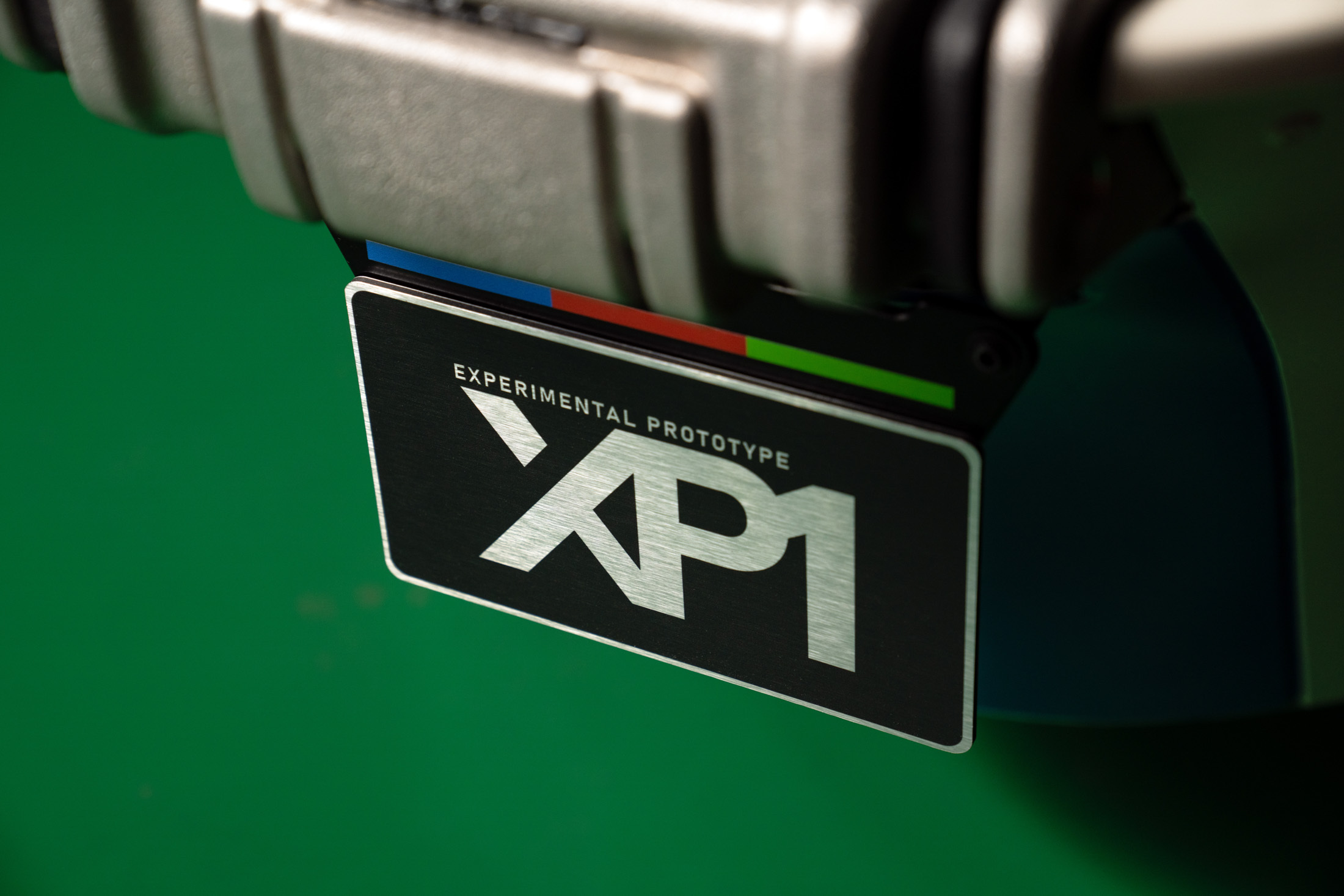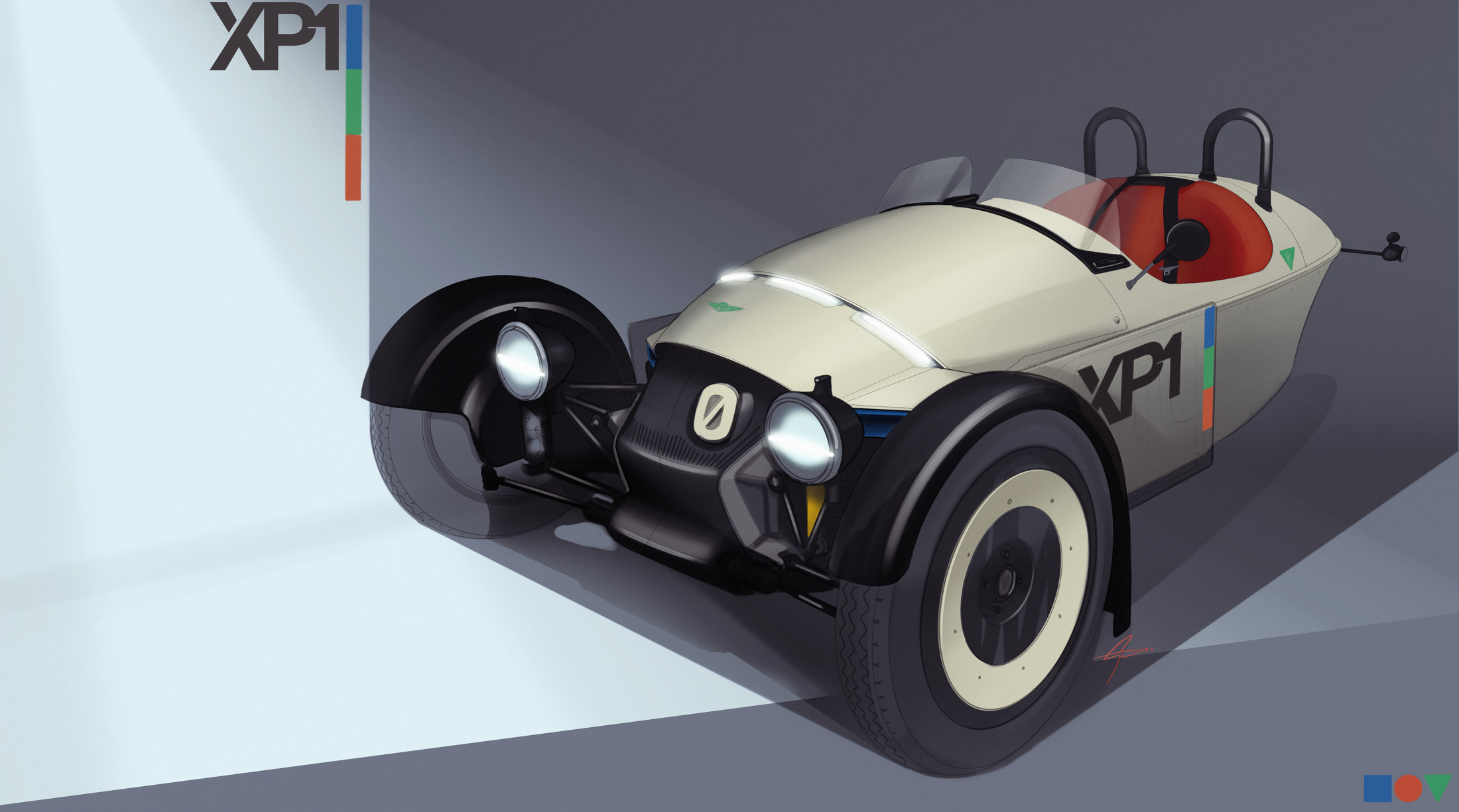Enthusiast cars will be some of the last to offer combustion engines, but that doesn’t mean sports car brands – even incredibly small, niche ones like Morgan – can afford to ignore the trend towards electric power. And while Morgan isn’t quite ready to commit an EV to production, it has just dropped a big hint that one is coming with the new XP-1 prototype.
Essentially an electric version of the normally Ford-powered Super 3, it loses the production trike’s naturally aspirated three-cylinder engine in favor of a single motor mounted in the transmission tunnel, again driving the solo rear wheel. The new powertrain develops 134 hp (136 PS / 100 kW), which is 16 hp (16 PS) more than the ICE version makes, and though Autocar reports that the curb weight has increased by 60 kg (132 lbs), the overall weight should still come in below 700 kg (1,543 lbs), an incredibly low figure for any car, let alone an EV.
A tiny 33 kWh battery located in the nose where the ICE engine normally lives promises a range of around 150 miles (241 km), which would be classed as terrible in a normal EV, but is probably twice as far as any sane person would want to drive in a vehicle that’s sensational to drive in short bursts, but wearing over longer distances.
Related: Morgan Introduces First Super 3s To The U.S., Plans To Offer Four-Wheel Models By 2024
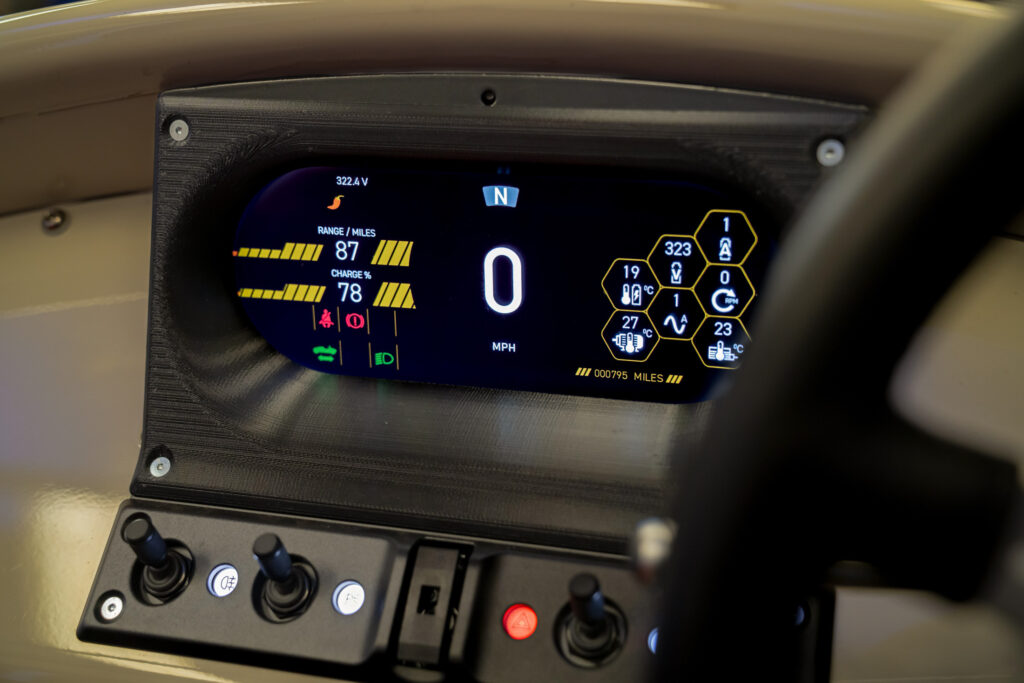
Still, in the interests of maximising efficiency of drivers who do want to take on a road trip, Morgan says it has slashed the drag factor by 33 percent by modifying the wheels, nose and underbelly. The XP-1 even features bi-directional charging and comes with a CCS-type connection, which the automaker says will help future-proof any production version. Other technical firsts (for Morgan) include an electric parking brake, while the cold war-style gauge cluster has been redesigned and appears to feature a series of chillis depicting the selected power mode.
Morgan hasn’t outright confirmed that we’ll get a production XP-1, and you might remember that the cool EV3 concept from 2016 never got made it to the street, although its mid-century front-end design did influence the look of the Super 3. But the market and acceptance of EVs in the enthusiast community means things are very different a decade on. The project has been going for 12 months so far, and the plan is for it to undergo another 12-18 months of testing. Our take: expect to be able to buy one by 2027, if not sooner.
H/T to Autocar










